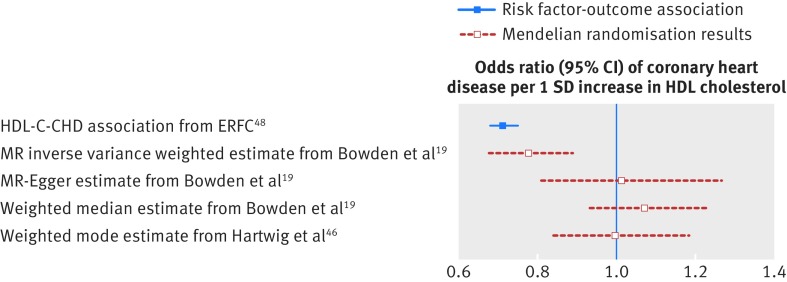Fig 2.
Example of genetic pleiotropy in Mendelian randomisation: HDL cholesterol and risk of heart disease. Variants associated with HDL cholesterol are likely to have pleiotropic effects on risk of heart disease because they also associate with LDL cholesterol and triglycerides.2 45 Thus the inverse variance weighted Mendelian randomisation estimate, which assumes no pleiotropy, provides (biased) evidence of a protective role for HDL cholesterol in coronary heart disease. But the estimates using MR Egger, weighted median, and weighted mode, which allow for genetic pleiotropy, are attenuated towards the null. The MR Egger estimator assumes that for the variants with pleiotropic effects on coronary heart disease the magnitude of these effects do not correlate with the magnitude of the variants’ effects on HDL cholesterol. These results suggest that the inverse variance weighted estimate is driven by genetic pleiotropy19 46 47 48 and that HDL cholesterol is unlikely to have a major causal role in the development of coronary heart disease. CHD=coronary heart disease; ERFC=Emerging Risk Factors Collaboration; HDL-C=high density lipoprotein cholesterol; SD=standard deviation

